


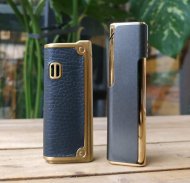
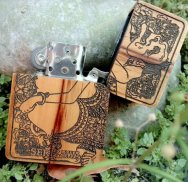
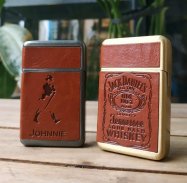
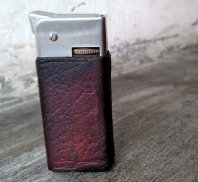
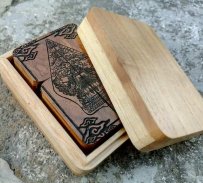
Gas Lighters Design

Gas Lighters Design ਦਾ ਵੇਰਵਾ
Gas lighters or lighters are matches that use liquids such as naphtha or butane. To be able to produce sparks and ignite sparks, flints are used on very rough surfaces, so these sparks ignite liquids or gases so they burn. The amount of fire can be arranged so that it is not harmful.
The first match was converted to a flintlock gun that used gunpowder. One of the first matches was discovered by a German chemist named Johann Wolfgang Döbereiner in 1823 and was often called the Döbereiner lamp. These matches work by passing flammable hydrogen gas, produced in matches through chemical reactions, on top of a platinum metal catalyst which in turn causes it to ignite and produce large amounts of heat and light.
In the 1950s, there was a change of choice fuel from naphtha to butane, because butane allows a flame that can be controlled and has little aroma. This also led to the use of piezoelectric sparks, which replaced the need for flint wheels in several matches and were used in many Ronson lighters.
In modern times most of the world's lighters are produced in France, the United States, China, and Thailand.

























